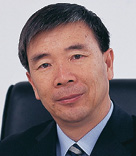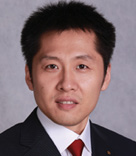Recently nothing in the intellectual property (IP) industry has been more eye-catching than the news about IP courts. As China’s first and most important IP court, Beijing IP Court launched a series of initiatives with weathervane significance. Let’s take its first case as the starting point to explore the rich connotations of these initiatives.

Executive Partner
Run Ming Law Office
Elimination of local protectionism and inter-region jurisdiction is the direction of trend of judicial reform. Beijing IP Court’s first case is a patent administrative suit where Wecome Medicine Industry sued the Patent Re-examination Board of the State Intellectual Property Office (SIPO), with Huaihua Zhenghao Pharmaceutical as the third party. This case involves patent grant and affirmation, reflecting the special characteristics of Beijing IP Court.
Established as an intermediate court, Beijing IP court has exclusive jurisdiction over cases in the areas of patents, trademarks, administrative authorisation, and patent grant and affirmation, which fall within the scope of its primary functions. It serves as the court of first instance for civil and administrative cases in the areas of patents, new plant species, integrated circuit design, technical secrets, computer software civil and administrative cases (collectively known as technology cases), and determination of well-known trademarks within the municipality of Beijing, as well as hears IP cases appealed from the municipality’s basic courts.
Breaking local protectionism
The inter-regional exclusive jurisdiction over technology cases breaks the limitation of local protectionism, and the concentration of technology cases for trial in turn facilitates judicial specialisation and consistency of law enforcement standards. Guangzhou IP Court has started inter-regional jurisdiction over technology cases and cases of well-known trademark determination within Guangdong province (exclusive of Shenzhen). According to reliable sources, Beijing IP Court, within three years from its set-up, may start hearing technology cases from eight provinces, autonomous regions and municipalities in northern China.
De-administration: heads of courts and tribunals will regularly hear cases. Beijing IP Court’s first case saw an unprecedented distinguished collegial panel, with the court’s president, Su Chi, as the presiding judge. Pioneering in China’s IP trial, Su participated in founding the first IP tribunal of China, the IP tribunal of Beijing Intermediate Court, and served as its first head, presided over or headed the trial of many new types of IP cases in China, including the cases of Microsoft v Giant Computer Company, and Walt Disney v Beijing Children’s Publishing House, Beijing Publishing House, and Beijing Xinhua Bookstore for copyright infringement, and set up the system of pretrial exchange of evidence, a widely used and far-reaching system in China’s judicial practice.
Deserving appointment
Over the years Su has been devoted to IP trial and its talent building, and his appointment as the first head of China’s first IP tribunal and first IP court is an honour he deserves, coincidentally but not accidentally. Other members of the panel include Judge Jiang Ying, head of the first tribunal of Beijing IP Court, and Yi Jun, former deputy head of the IP tribunal of Beijing First Intermediate Court, both of whom are experts and assume certain administrative leadership positions.
The heads of IP courts and tribunals hearing cases echoed the call of judicial reform, and more and more cases will be handled directly by the heads of courts and tribunals in the future. De-administration of courts, abolition of the case reporting system, and strengthening of the independent status of the trial judge will be the trends of the future development of the judicial system.

IP Counsel
Run Ming Law Office
A series of initiatives to promote judicial efficiency and professionalism start with judge assistants and technical investigators. The judge assistant system is a key constituent of judicial reform, which significantly improves the efficiency of trial. Beijing IP Court’s first case illustrates the operation mechanism of this system.
The judge assistant is in charge of the procedural work of an entire case, including preparation of the pre-trial examination report for the judge’s reference at trial. To gain a comprehensive grasp of the case’s substantive work, a judge assistant needs to attend the trial, which is why a bench is separately set up for the judge assistant in the court session.
A detail worth noting is that during the hearing of Beijing IP Court’s first case, the presiding judge, Su Chi, specifically asked whether the judge assistant, Yang Jing, would institute an inquiry, and the substantive part of the hearing ended only after the judge assistant confirmed having no further inquiry. That is because judge assistants are responsible for drafting trial documents, and hence play an indispensable role in the court session.
Unlike judges, however, judge assistants submit their inquiries in writing to the presiding judge, who will raise those inquiries on their behalf. The judge assistants – Yang Jing, Yin Yue, and Yuan Wei – who served as the judge assistants in the first three cases of the IP court, were all formerly experienced deputy judges at Beijing First Intermediate Court or Beijing Second Intermediate Court, and capable of fulfilling the duties of a judge assistant.
The role of technical investigator arose from the needs for concentrated jurisdiction over technology cases by IP courts. Compared to ordinary cases, technology cases require the understanding of specialised technologies in the relevant fields for the purposes of fact finding investigation.
Difficult for judges
It is difficult for judges to understand specialised technologies in various fields, and technical investigators, as technology professionals assisting with the trial, are responsible for the investigation, inquiry, analysis, and determination of the technical issues related to a case, and provide technology-related advice to the collegial panel, making up for judges’ lack of technical expertise. The establishment of the technical investigator system provides institutional security for the specialist trials of technology cases, and effectively bridges the gap formerly existing between the judge and the parties in terms of technical understanding.
Beijing IP Court’s first case is an ice-breaker for judicial reform, and we look forward to further information from Guangzhou and Shanghai IP courts.
Wang Yadong is the executive partner and Han Yufeng is an IP counsel at Run Ming Law Office
Suite 1804, NCI Tower
12A Jianguomenwai Avenue
Chaoyang District, Beijing 100022, China
Tel: +8610 65693511
Fax: +8610 65693512/13
www.runminglaw.com
E-mail: wangyd@runminglaw.com
hanyf@runminglaw.com





















